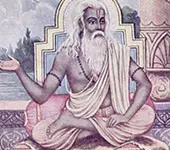If God controls, how is man responsible?

The scriptures assert:
- 'One becomes what one does—righteous acts lead to righteousness, and sinful acts lead to sin' ('यथाकारी यथाचारी तथा भवति').
- 'Perform sacrifices, offer oblations, and give charity' ('यजेत् जुहुयाद् दद्यात्').
- 'The soul is the doer because scriptures prescribing duties would be meaningless otherwise' ('कर्ता शास्त्रार्थवत्त्वात्').
At the same time, the scriptures declare, 'God neither creates agency nor actions for beings' ('न कर्तृत्वं न कर्माणि लोकस्य सृजति प्रभुः'). This shows the balance: God does not impose actions but inspires through the inner self, respecting the soul's freedom within the framework of karma.
If the soul were entirely dependent on God, how could scriptures call it the doer? Forcing a being into sinful acts like murder would make God culpable for injustice and cruelty.
The Upanishads also proclaim:
'There is no other seer, hearer, or thinker apart from the Self' ('नान्योऽतोऽस्ति द्रष्टा नान्योऽतोऽस्ति श्रोता नान्योऽतोऽस्ति मन्ता'). This underscores divine independence but does not negate the soul's limited freedom.
What does Yoga Vasishta say about God's role in human actions?
Yoga Vasishta says that God inspires good actions and works for the liberation of souls, but He does not force anyone into good or bad deeds.
How does God control the soul?
God is omnipresent and dwells in every heart, controlling the soul from within as the inner ruler.
If God is controlling everyone from inside, then how can an individual be held responsible for his actions?
God inspires and guides from within, but He does not dictate or force actions. Individuals have free will to choose their actions. While God provides the knowledge, wisdom, and resources, the decision to act lies with the individual. Responsibility arises because every person has the freedom to align with God's guidance or act contrary to it. The results of actions, whether good or bad, are based on the choices made by the individual, not imposed by God. Therefore, accountability rests with the doer, even though God resides within as a guide.
How does the Yoga Vasistha differentiate between the ignorant and the wise?
A: The ignorant see themselves as independent doers of actions, while the wise understand that God inspires actions but does not impose them.
Does this philosophy attribute partiality or cruelty to God?
A: No, it refutes the idea of partiality or cruelty by emphasizing that each being faces the results of their own actions.
What is the ultimate goal of these teachings?
A: The ultimate goal is to help individuals attain unity with God and realize the nature of the soul through wisdom.

English
Yoga Vasishta
Click on any topic to open
7
30
Astrology
Atharva Sheersha
Bhagavad Gita
Bhagavatam
Bharat Matha
Devi
Devi Mahatmyam
Ganapathy
Glory of Venkatesha
Hanuman
Kathopanishad
Mahabharatam
Mantra Shastra
Mystique
Practical Wisdom
Purana Stories
Radhe Radhe
Ramayana
Rare Topics
Rituals
Rudram Explained
Sages and Saints
Shiva
Spiritual books
Sri Suktam
Story of Sri Yantra
Temples
Vedas
Vishnu Sahasranama
Yoga Vasishta